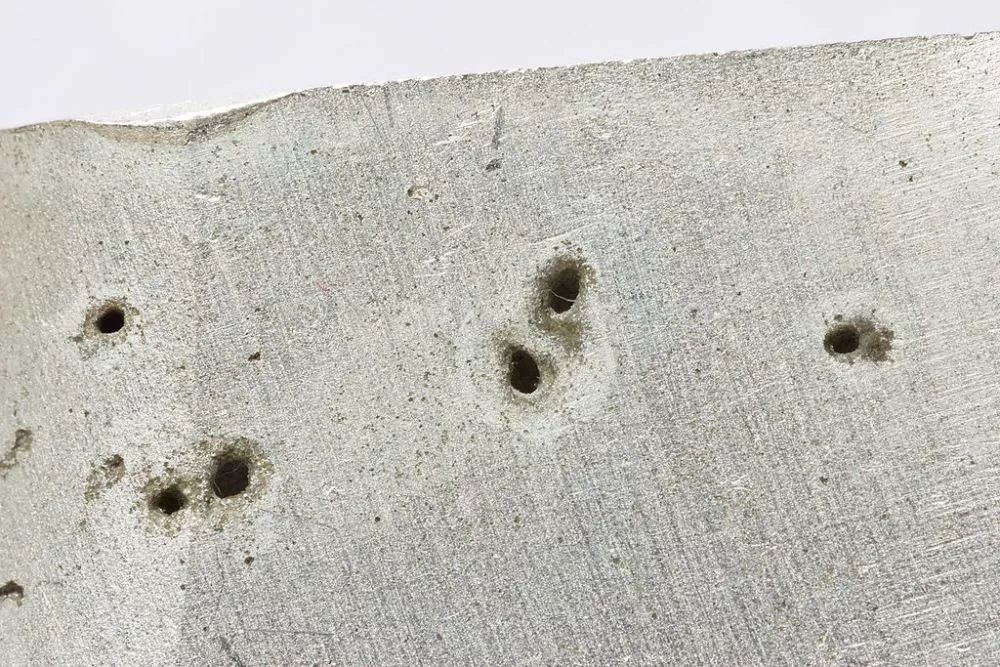
Can Aluminum Fences Rust?
One of the biggest reasons that many people choose aluminum over steel when they’re selecting a metal fence is corrosion, and more specifically, corrosion resistance.
So, it’s not surprising that one of the biggest questions about aluminum fences is whether they can rust or not. Let’s take a closer look.
What Is Rust?
What we know as rust is actually a substance known as ferrous oxide, or more commonly, iron oxide.
This is a material that is formed on ferrous metals when it comes into contact with oxygen, and it’s usually accelerated when there’s another chemical like water or salt present. That’s why metal fences made from ferrous metals rust faster when they’re close to water and especially when they’re close to the ocean.
That’s why we use coatings like galvanizing on steel fences. The zinc layer creates a barrier between the steel (which is a ferrous metal) and the air and any moisture and salts. This helps to prolong the life of those products.
Does aluminum Rust?
Since aluminum is a non-ferrous metal, which means it does not contain iron, it does not rust the way that steel fences, which do contain iron, will.
There’s no iron in the aluminum fence to oxidize, so there’s just no chemical way that it can create ferrous oxide.
Does That Mean aluminum Doesn’t Corrode?
Unfortunately, just because aluminum fences don’t rust, that does not mean that they can’t corrode.
In fact, aluminum fences can and do become brittle and damage easily over time, especially when they’re close to substances like water and salts.
While this isn’t rust, it does have a similar name: aluminum oxide.
When aluminum oxidizes, it usually starts with a thin film of a chalky white substance and later may develop pitting on the surface of the material.
Aluminum corrosion often takes longer than it would for steel in the same environment, but it can and does happen. So, while aluminum fence usually lasts longer, it’s not a completely corrosion-free option.
How Can You Protect Aluminum Fence from Corrosion?
Now that we’ve established that aluminum fences can corrode and oxidize, you might be wondering what your options are, particularly if you are planning a fence in a corrosive environment, like somewhere close to the ocean.
The solution is often to choose a fence that is painted or powder-coated.
When we’re trying to protect galvanized steel fences from corrosion, we call this process “duplex coating” which refers to the fact that it’s already coated with a zinc layer. Duplex coating simply adds a second layer of protection.
Since we don’t galvanize aluminum fences, the paint or powder coating layer is applied directly to the metal, but its role is the same.
Any kind of layer or physical barrier you can put between the metal of your fence and any corrosive chemicals in the air is a good idea. The more time it takes for oxygen, salt, and water to reach the surface of the metal, the longer it will take for it to start to oxidize and corrode.
Is Aluminum Fence Better for Corrosive Environments?
In general, aluminum fences do have a longer lifespan in corrosive environments than galvanized mild steel fences, so yes, it is better for corrosive environments.
However, there might be other types of metal fencing, such as zinc alum fencing or 316 stainless steel fencing, that will last even longer in a corrosive environment.
Other materials like PVC, concrete, and other non-metallic options might also work in some corrosive environments.
So if you’re shopping for a fence that will be installed near the ocean or in another challenging environment, be sure to consider all options, and always ask what the expected lifespan for any fence will be in the specific type of environment it will be installed in.


